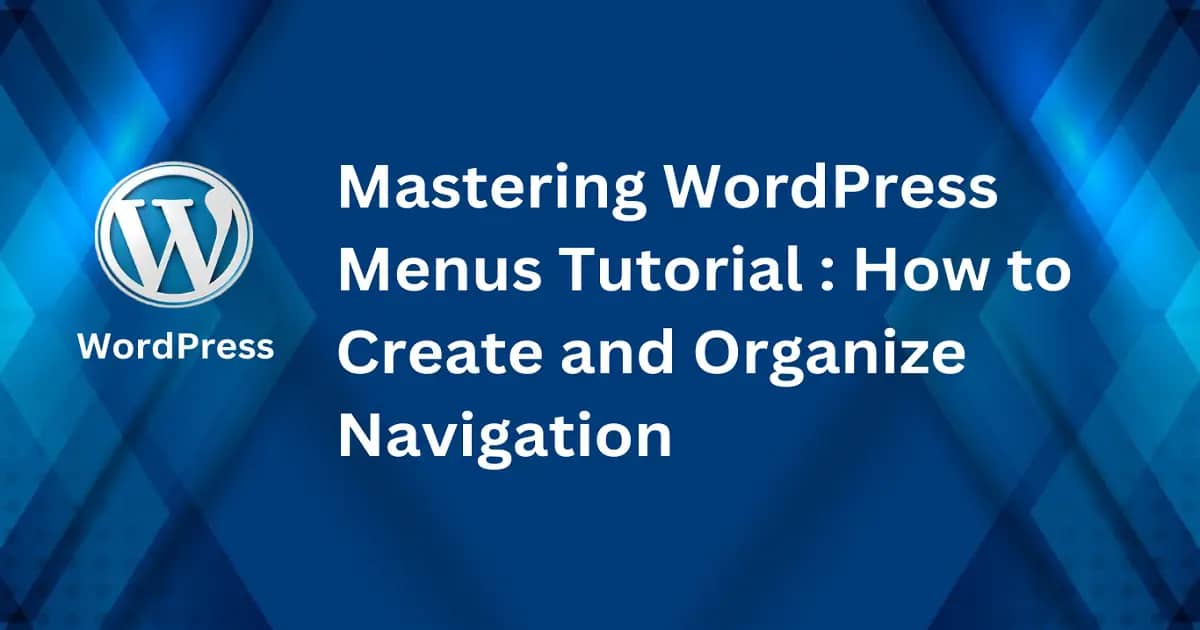Cybersecurity is more critical than ever for WordPress website owners in 2025. With online threats like malware, brute-force attacks, and vulnerabilities in outdated plugins on the rise, protecting your site is no longer optional. The good news? The best WordPress security plugins can shield your website from these risks by offering powerful tools like malware scanning, firewalls, and two-factor authentication. Whether you’re managing a small blog or a large e-commerce site, having the right security plugin is key to safeguarding your data and ensuring peace of mind.
Why You Need a Security Plugin for Your WordPress Site
Running a WordPress website brings amazing flexibility and functionality. However, it also attracts potential security risks. Cybercriminals are always on the lookout for vulnerabilities; if your site isn’t protected, you could be their next target. Adding one of the best WordPress security plugins can be the shield your website needs to fend off threats effectively.
Common WordPress Vulnerabilities
WordPress is a powerful platform, but its very popularity makes it a frequent target for hackers. Some of the most common vulnerabilities include:
- Broken Access Controls: If proper permissions aren’t set, unauthorized users can gain access to sensitive areas of your website.
- Outdated Plugins and Themes: Failing to update your plugins or themes can leave loopholes for hackers to exploit. For example, outdated software can make your site susceptible to SQL injection attacks or brute-force entry attempts. Learn more about common WordPress vulnerabilities and how to fix them.
- Cross-Site Scripting (XSS): This occurs when attackers inject malicious code into your website, potentially compromising visitors’ private data.
- Weak User Credentials: Using weak passwords or not enforcing strong password policies makes your site an easier target for brute-force attacks.
The truth is, even small oversights can have big consequences. A single vulnerability can lead to stolen data, defaced web pages, or even a complete site takedown. Tools like the best WordPress security plugins directly counter these weaknesses by providing critical protective measures.
Learn more about WordPress-specific vulnerabilities here.
The Role of Security Plugins
Security plugins act as your website’s primary line of defense. They operate much like a home security system, alerting you to threats and actively blocking intrusions before they can cause harm. Features offered by the best WordPress security plugins vary, but here are some essential tools they provide:
- Malware Scanning: A solid plugin will regularly scan your website for infections and notify you immediately if any malicious code is detected.
- Brute-Force Protection: Blocking repeated failed login attempts is one of the simplest yet most effective ways to keep hackers out.
- Web Application Firewalls (WAF): These firewalls prevent unauthorized access by monitoring incoming traffic and blocking known malicious sources.
- Two-Factor Authentication (2FA): Force users to verify their identity using an additional step (like a text message code) to maximize security.
The automation and ongoing monitoring delivered by security plugins take a huge weight off your shoulders. You don’t need to manually check logs or worry about vulnerabilities slipping through the cracks because the plugin’s algorithms are doing the heavy lifting for you. Explore why security plugins are critical for your WordPress website here.
With the ever-growing list of features in these tools, it’s easy to see why they’re indispensable for site owners serious about safety. From scanning to prevention, the best WordPress security plugins ensure your website stays one step ahead of cyber threats.
Read Also: How to Set Up WordPress from Scratch: A Simple Step-by-Step Guide
Criteria for Choosing the Best WordPress Security Plugin
Selecting a WordPress security plugin can feel overwhelming with so many options available. The goal is to find a plugin that delivers powerful protection without adding unnecessary complexity to your workflow. Here’s a guide to the key criteria you should consider.
Essential Security Features
Not all plugins are created equal, so it’s important to focus on the features that make a real difference for your site’s safety. Look for these must-have tools when evaluating the best WordPress security plugins:
- Two-Factor Authentication (2FA): This feature ensures that only authorized users can log in to your site by requiring a secondary form of verification, such as a text message code or app approval. It’s like locking your front door and adding a deadbolt for extra security.
- Malware Scanning: An effective plugin regularly scans your site for malicious software, alerting you if anything suspicious appears. Some plugins even offer automatic cleanups, saving you from the headache of manual troubleshooting.
- Web Application Firewall (WAF): A robust firewall blocks potentially harmful traffic, targeting known threats before they can infiltrate your site. This active protection keeps hackers at bay without requiring daily input from you.
- Brute-Force Attack Protection: Hackers often flood login pages with password attempts, hoping something sticks. The best plugins limit these attempts or block suspicious IPs completely.
- Real-Time Monitoring: This feature continuously checks your website for vulnerabilities, providing instant notifications if issues arise. Think of it as a virtual security guard watching over your site around the clock.
When shopping for a plugin, remember that a comprehensive feature set is crucial. Tools like Wordfence or Sucuri deliver many of these capabilities at a high standard, making them top contenders in the market.
Free vs. Paid Options
Another critical decision is choosing between free and paid security plugins. Both options can provide strong protection, but the choice often boils down to your specific needs and budget. Here’s how they stack up:
Free Plugins:
- Offer basic security measures like malware scanning and brute-force protection.
- Ideal for small websites or blogs with minimal risk exposure.
- Some reliable free options include Wordfence Free and Shield Security, which can handle most non-critical use cases.
Paid Plugins:
- Provide advanced features like real-time threat monitoring, automatic removal of malware, and top-tier customer support.
- Suitable for e-commerce sites, membership platforms, or any website that manages sensitive user information.
- Investing in paid plugins like iThemes Security Pro often pays off with peace of mind and reduced risk of data breaches.
So, how do you decide? If you’re running a high-traffic or business-critical site, the robustness of a premium plugin might be worth the cost. On the other hand, free plugins are a great starting point for smaller ventures. Balancing your requirements with your budget can help you land the best WordPress security plugins for your website’s needs.
Top 7 WordPress Security Plugins for 2025
Keeping your WordPress website secure in 2025 requires more than strong passwords and regular updates. Installing one of the best WordPress security plugins can give you a fortified defense against hackers, malware, and other online threats. Here’s a ranked list of the top plugins to safeguard your site this year.
1. Wordfence Security
Wordfence Security is one of the most trusted names in WordPress security. It combines a powerful firewall with malware scanning to protect your site from a wide array of threats.
- Real-Time Threat Detection: Wordfence proactively identifies vulnerabilities and suspicious behavior, alerting you immediately.
- Malware Scanner: It scans core files, themes, and plugins for malware, ensuring that infected software doesn’t compromise your site.
- Login Protection: Features like two-factor authentication and CAPTCHA prevent brute-force attacks.
- Live Traffic Monitoring: Stay informed with real-time insights into who’s accessing your site and blocks potentially harmful IPs automatically.
Explore Wordfence Security and its features.
2. Sucuri Security
Sucuri Security provides an all-in-one solution for protecting WordPress sites. Its robust set of tools is tailored to address modern threats.
- Comprehensive Site Auditing: Tracks changes to core files, plugins, and themes to alert you of any breach or modification.
- DDoS Protection: The Web Application Firewall (WAF) blocks malicious traffic to prevent distributed denial-of-service attacks.
- Post-Hack Cleanup: If your site is compromised, Sucuri offers a malware removal service to clean up the mess.
Sucuri is perfect for business-critical sites that can’t afford downtime. Learn more about Sucuri Security.
3. All In One WP Security & Firewall
All In One WP Security & Firewall is an excellent option for those who want robust security features without the complexity.
- User-Friendly Interface: It’s straightforward to use, making it a great choice for beginners.
- Login Lockdown: Blocks suspicious login attempts and restricts failed login attempts to keep hackers out.
- File Integrity Monitoring: Checks your WordPress files for any changes that might indicate a security risk.
Its simplicity, combined with powerful protection, makes it one of the best WordPress security plugins available. Read more about All In One WP Security & Firewall.
4. MalCare Security
MalCare Security stands out for its automated tools and convenience, making it ideal for proactive protection.
- Cloud-Based Scanning: This avoids server slowdowns while providing highly accurate malware detection.
- One-Click Malware Removal: Fix critical issues instantly without affecting site performance.
- Firewall Optimization: Filters out malicious traffic before it reaches your site.
MalCare Security is particularly well-suited for e-commerce sites that need high uptime. Discover MalCare’s features.
5. iThemes Security
With over 30 unique features, iThemes Security is designed to tackle the most common WordPress vulnerabilities head-on.
- Brute-Force Protection: Blocks IP addresses that show suspicious activity or multiple failed login attempts.
- Two-Factor Authentication: Add an extra layer of security to your WordPress login page.
- Regular Security Checks: Keeps tabs on core updates, plugins, and themes to ensure minimal exposure to threats.
iThemes is highly reliable and user-friendly. Learn about iThemes Security.
6. Jetpack Security
Jetpack Security is a natural choice for WordPress users due to its seamless integration and multi-faceted defense tools.
- Spam Protection: Filters out suspicious comments to protect your site content and reduce bot activity.
- Downtime Monitoring: Alerts you whenever your site is unavailable, so issues can be resolved quickly.
- Backup & Restore: Offers real-time backups to keep your website data safe.
Jetpack’s comprehensive approach makes it one of the best WordPress security plugins for all types of users. Explore Jetpack Security features.
7. Defender Security
Defender Security combines simplicity with reliability, making it an excellent choice for small to medium-sized websites.
- Core File Scanning: Easily detects changes to WordPress core files that may indicate a hack.
- Free Version: Includes essential security features at no cost, with premium options for more advanced needs.
- Intuitive Interface: Provides clear instructions and recommendations for quick configuration.
Defender is a great budget-friendly alternative for those just starting out with WordPress. Discover what Defender Security offers.
By incorporating one of these best WordPress security plugins into your site, you can focus on growing your online presence without worrying about potential threats.
Emerging Trends in WordPress Security for 2025
As the digital environment continues to evolve, so do the risks that target WordPress websites. Staying one step ahead of cyber threats requires adopting innovative security solutions that are both scalable and reliable. In 2025, several key trends are shaping how businesses protect their websites. Let’s explore these developments and how they intersect with the best WordPress security plugins.
Cloud-Based Security Solutions
Cloud-based security solutions are gaining significant traction among website owners due to their ability to deliver robust protection without taxing server resources. Unlike traditional security setups, which rely heavily on your web server, cloud-based platforms handle most of the security processes remotely. This means your website’s performance remains unaffected, even during resource-intensive operations like malware scans or attack mitigations.
Why is this trend important? For one, cloud solutions offer real-time threat intelligence. They monitor global attack patterns and adjust their algorithms dynamically to counter new threats. Many of the best WordPress security plugins are now incorporating cloud-based firewalls, ensuring that malicious traffic is intercepted before it reaches your site.
For instance, platforms like Sucuri, known for their Web Application Firewalls (WAFs), are leading the way in combining cloud efficiency with cutting-edge cybersecurity. The result? A streamlined experience with no performance compromises.
Automated Security Measures
Automation is no longer a luxury; it’s a necessity in 2025. Cyberattacks are increasing in complexity and volume, making manual monitoring and patching nearly impossible for busy website administrators. Automated tools integrated within the best WordPress security plugins allow for seamless scanning, detection, and remediation of vulnerabilities.
Think of automatic software updates and malware scans as having an always-on security guard for your site. These tools are designed to swiftly identify and neutralize threats without human input, saving time and ensuring uninterrupted protection. Options like MalCare offer automated malware removal services, while others ensure that your plugins and themes are always up-to-date with the latest security patches.
These automated features aren’t just practical – they’re proactive. They prevent zero-day vulnerabilities from becoming a problem you need to solve. Need to check your website logs daily? That’s a thing of the past when algorithms are doing it for you.
Security Integration with Hosting Services
The growing trend of integrating security features directly into hosting services is shaping up to be a game-changer. Rather than relying solely on third-party plugins, many hosting providers now offer built-in security measures tailored to WordPress users. This holistic approach ensures that every aspect of your platform – from databases to HTTP requests – is protected by design.
Hosting providers like WP Engine and Kinsta are leading this movement. Their services include features such as malware scanning, SSL certificate management, and Content Delivery Network (CDN) integration to enhance site security. As these hosting services work directly with WordPress, they complement the best WordPress security plugins, creating a dual-layered defense strategy.
By choosing a hosting provider that prioritizes security alongside a robust plugin, businesses can reduce vulnerabilities while simplifying their security workflows. It’s like having a sturdy house where every corner is bolstered with top-tier protection.
In 2025, staying secure isn’t just about installing a plugin or updating your software – it’s about adopting comprehensive security measures that integrate cloud technologies, automation, and hosting-level systems. These trends ensure your WordPress site is fully prepared to tackle evolving threats while maintaining top performance.
Read Also: Best Cheap WordPress Hosting with Free Domain in 2025
Best Practices for Maintaining WordPress Site Security
Securing your WordPress site is an ongoing process that involves vigilance and the right tools. By following key best practices, such as regular updates, enhanced login authentication, and activity monitoring, you can significantly reduce risks and keep your site safe. Here’s how to do it effectively.
Regular Updates and Backups
Keeping your WordPress core, plugins, and themes up-to-date is crucial for security. Developers frequently release updates to patch vulnerabilities and improve functionality. Failing to update could leave your site open to exploits.
Here are some actionable steps to stick with:
- Update Regularly: Check your dashboard weekly for available updates to ensure your WordPress core, plugins, and themes are running the latest versions. Plugins like Wordfence Security offer update notifications as part of their features.
- Schedule Backups: Always create backups before initiating updates. This way, you’ll have a safety net if something breaks during the process. Plugins like UpdraftPlus simplify backup scheduling and storage.
- Test Updates in a Staging Environment: If you run a complex or high-traffic site, test updates in a staging environment before deploying them live.
Inconsistent updates can lead to vulnerabilities being exploited by hackers, yet keeping your site updated while using the best WordPress security plugins ensures your online presence remains resilient.
Strong Passwords and Two-Factor Authentication
Passwords are the keys to your website, and weak ones are like leaving the front door unlocked. Combine strong passwords with two-factor authentication (2FA) for an added layer of protection against brute-force attacks.
Follow these tips for login security:
- Use Strong Passwords: A good password includes at least 12 characters, with a mix of letters, numbers, and special symbols. Avoid predictable strings like “admin123.”
- Enable Two-Factor Authentication: Adding 2FA ensures that even if someone gets hold of your password, they still can’t access your site without a second verification step. Tools like Google Authenticator work well with top plugins.
- Limit Login Attempts: Plugins such as Sucuri and Login Lock block repeated failed login attempts from suspicious IP addresses.
With attacks becoming more sophisticated each year, relying on strong authentication methods alongside the best WordPress security plugins is no longer optional—it’s essential.
Activity Logging and Monitoring
Monitoring what’s happening on your website is like setting up cameras in a secure building—you’ll know who is doing what and when. This is invaluable if a problem arises and you need to trace its origin.
Implement these monitoring practices:
- Use Activity Log Plugins: Plugins like WP Activity Log track user activity, helping you pin down unauthorized actions.
- Set Alerts for Suspicious Activity: Tools such as MalCare can notify you if unusual behavior occurs, like multiple failed logins or sudden content deletions.
- Review Logs Regularly: Schedule time to review activity logs weekly to detect and address potential threats early.
Activity logs let you have a clear view of your website’s health and security posture. Combined with the best WordPress security plugins, this proactive measure minimizes the chances of cyber intrusions.
By integrating these measures into your website management routine, you’re not just protecting your WordPress site—you’re building a secure foundation for your online business or blog.
Conclusion
Staying secure in 2025 starts with smart choices. Adding one of the best WordPress security plugins to your site helps block common threats like malware, brute-force attacks, and unauthorized access.
Your website is your online foundation—keeping it protected safeguards your reputation and user trust. Combine a reliable security plugin with best practices like strong passwords, regular updates, and backups. It’s the ultimate formula for peace of mind.
Which WordPress security plugin fits your site’s needs? Share your top pick in the comments below!







